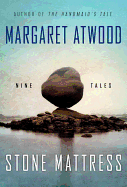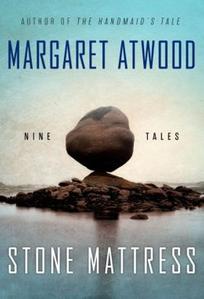

"Alphinland" is connected to the next two stories via a tangled love story among several characters; the remaining tales stand alone. Atwood delves into the intricacies of retaliation for a heinous crime committed in high school in "Stone Mattress" and analyzes the way a windfall can bring out intense jealousy and/or adoration among friends in "The Dead Hand Loves You." In "Torching the Dusties," Atwood heads toward a more futuristic scenario in which the elderly protagonist suffers from Charles Bonnet syndrome and envisions tiny people clambering on the furniture while unknown protestors converge at the gates of the nursing home. Regardless of the setting, in each, Atwood illustrates the kindness or viciousness of human beings.
Although the themes and topics Atwood addresses are not new--alcohol, sex, love, money, fame, drugs, death, obituaries, extramarital affairs and even a possible vampire--as always, her perspective is bright and energetic. Her prose is full of new takes on old sayings; she describes a series of Victorian row houses by clarifying, "That was before those houses turned into restored Heritage Buildings worth an arm and a bladder...." Atwood firmly grasps the human condition in all its ragged, aging splendor and delivers yet another exceptional addition to her already extensive collection of classics to be read and cherished. --Lee E. Cart, freelance writer and book reviewer
Shelf Talker: The numerous layers of the human psyche and the body's physical condition are revealed in definitive Atwood style.

